Definition
Irritable bowel syndrome (IBS) is a disorder of the large bowel (colon) in which the bowel overreacts to a mild stimulus – such as eating or the presence of gas by going into spasm. It is also known as spastic colon. IBS is characterised by abdominal pain, bloating and irregular bowel habits – including alternating diarrhoea and constipation.
Epidemiology
IBS is present in 10% to 20% of adults in the US. One study conducted in a health maintenance organisation population showed the prevalence of IBS symptoms in respondents to be 19.5%.The prevalence is similar in Europe, although it may be lower in Asia and Africa. In the UK, a cross-sectional postal survey conducted in a sample of British adults (4476 people aged 20-69 years) reported a prevalence of IBS (defined as ≥6 episodes during the previous year plus Manning ≥2 criteria) equivalent to 16.7%, with a higher rate among women (22.8%) compared to men (10.5%). In Australia, a postal questionnaire (4500 people aged ≥18 years) showed prevalence for IBS according to Manning, Rome I and Rome II criteria to be 13.6%, 6.9%, and 4.4%, respectively. Equivalent types of postal surveys conducted in Asia found similarly lower IBS prevalence rates in Singapore (11.0%, 10.4%, and 8.6% according to Manning (>1 criteria), Rome I and Rome II criteria, respectively) and in China (11.5%, and 5.7% according to Manning and modified Rome II criteria), this last one showing a higher prevalence in women. Among those who seek medical help, females outnumber males at a ratio of 2:1. There are no data to suggest that there are any trends in the prevalence of the disease. A history of physical or sexual abuse has been reported in 32% to 44% of patients. IBS symptoms may also develop following enteric infections. IBS is seen in adolescents and in all adult age groups. The onset of symptoms after 50 years of age is unusual.
Types
There are three types of irritable bowel syndrome, or IBS. They include:
IBS with constipation: This comes with stomach pain and discomfort, bloating, abnormally delayed or infrequent bowel movement, or lumpy/hard stool.
IBS with diarrhoea: This comes with stomach pain and discomfort, an urgent need to move your bowels, abnormally frequent bowel movements, or loose/watery stool.
IBS with alternating constipation and diarrhoea.
There are about an equal number of people with IBS in each category. There is also evidence that most people with IBS will alternate between types over time.
Risk factors of Irritable Bowel Syndrome
Risk factors for IBS include:
- Abnormal (too fast or slow, or too strong) movements of the colon and small intestines
- Hypersensitivity to pain caused by gas or full bowels
- A viral or bacterial infection of the stomach and intestines (gastroenteritis)
- Small intestinal bacterial overgrowth (SIBO)
- Reproductive hormones or neurotransmitters may be off-balance in people with IBS.
Anxiety or depression may accompany IBS, though these have not been found to be a direct cause of IBS.
Causes
- The exact cause of IBS is unknown. Potential causes may include sensitivity of the GI tract to gas and bloating, alteration of the fecal flora (bacteria) within the intestines, or altered levels of specific compounds or chemicals within the body, such as serotonin.
- Having a recent GI track infection and having a history of IBD may also be a risk factor for IBS. Although stress does not cause IBS, many people with IBS indicate that stress does aggravate their symptoms.
- Hormones may also play a role. For example, many women often report more symptoms when they are menstruating.
- In addition, many people with IBS report more symptoms after eating specific foods and beverages, such as spicy foods, certain fruits and vegetables, foods containing wheat, coffee, alcohol and milk.
Symptoms of Irritable Bowel Syndrome
The main symptoms of IBS are:
- Abdominal pain or discomfort that is often relieved by passing wind or faeces
- Stomach bloating
- Chronic diarrhoea or constipation, or alternating between the two
Symptoms of IBS
Other symptoms are:
- Whitish mucus in the stool/poo
- The feeling that you have not finished a bowel movement
- Nausea
IBS can be painful; however, it does not damage the colon or other parts of the digestive system. IBS does not lead to other health problems.
Diagnosis and test
Physical Exam
During a physical exam, your doctor usually
- Checks for abdominal bloating
- Listens to sounds within your abdomen using a stethoscope
- Taps on your abdomen checking for tenderness or pain
In most cases, doctors don’t need to perform tests to diagnose IBS. Your doctor may perform a blood test to check for other conditions or problems. Your doctor may perform more tests based on the results of the blood test.
Blood test
Doctors use blood tests to check for conditions or problems other than IBS. A health care professional sends your blood sample to a lab.
Stool test
A stool test is the analysis of a sample of stool. Your doctor will give you a container for catching and holding a stool sample. You will receive instructions on where to send or take the kit for analysis, to check for blood or parasites. Your doctor may also check for blood in your stool by examining your rectum during your physical exam.
Flexible sigmoidoscopy
Flexible sigmoidoscopy is a procedure that uses a flexible, narrow tube with a light and tiny camera (called a sigmoidoscope) on one end to look inside your rectum and lower colon.
This procedure can show signs of conditions or problems in the lower GI tract. During the procedure, the doctor can take a biopsy. You won’t feel the biopsy.
Colonoscopy
Colonoscopy is a procedure that uses a long, flexible, narrow tube with a light and tiny camera (called a colonoscope) on one end to look inside your rectum and colon. Colonoscopy can show irritated or swollen tissue, ulcers, polyps, and cancer. A trained specialist performs this procedure.
Lower GI series
A lower GI series, also called a Barium Enema, uses x-rays to look at your large intestine. During a lower GI series, you’ll be asked to lie on a table while the doctor inserts a flexible tube into your anus. The doctor will fill your large intestine with barium. You may be asked to change positions several times during the test.
Treatment and medications
Discussions between you and your doctor can help decide the appropriate treatment plan for your specific needs. Different treatments work for different types of IBS. Avoiding individual triggers can help many people with IBS. Others choose to take medications at times when their IBS is ‘playing up’.
- Anti-diarrhoeal agents (e.g. Imodium, Lomotil, fibre supplements) can be an essential part of management in those with diarrhoea-predominant IBS
- Pain-relieving medications (e.g. opiates such as codeine) can provide effective pain relief. One of their most common side effects, constipation, may also relieve the diarrhoea of diarrhoea-predominant IBS. Pain relief may also be obtained from medications that reduce bowel spasms
- Constipation treatments (e.g. fibre supplements or laxatives) may provide relief for constipation predominant IBS
- Antispasmodic agents (e.g. mebeverine, belladonna, hyoscine and peppermint oil capsules) may ease cramping
- Tricyclic antidepressants can be effective in treating the pain of IBS, but are best prescribed for a trial period with monitoring of symptoms. Use of these medications does not mean that IBS is caused by depression
- Establishing eating routines and avoiding sudden changes of routine.
Prevention of Irritable Bowel Syndrome
Anyone can experience digestive upset from worry or anxiety. But if you have irritable bowel syndrome, stress-related problems such as abdominal pain and diarrhoea tend to occur more often and be more severe. Finding ways to deal with stress may help prevent or ease symptoms:
Counseling. In some cases, a psychologist or psychiatrist can help you learn to reduce stress by looking at how you respond to events and then working with you to modify or change that response.
Biofeedback. This stress-reduction technique helps you reduce muscle tension and slow your heart rate with the feedback help of a machine. You’re then taught how to produce these changes yourself. The goal is to help you enter a relaxed state so that you can cope more easily with stress.
Progressive relaxation exercises. These help you relax muscles in your body, one by one. Start by tightening the muscles in your feet, then concentrate on slowly letting all of the tension go. Next, tighten and relax your calves. Continue until the muscles in your body, including those in your eyes and scalp, are relaxed.
Deep breathing. Most adults breathe from their chests. But you become calmer when you breathe from your diaphragm, the muscle that separates your chest from your abdomen. When you inhale, allow your belly to expand. When you exhale, your belly naturally contracts. Deep breathing can also help relax your abdominal muscles, which may lead to more-normal bowel activity.
Mindfulness training. This stress-reduction technique helps you focus on being in the moment and letting go of worries and distractions.
Other techniques. Set aside at least 20 minutes a day for any activity you find relaxing listening to music, reading, playing computer games or just soaking in a warm bath.
 Diseases Treatments Dictionary This is complete solution to read all diseases treatments Which covers Prevention, Causes, Symptoms, Medical Terms, Drugs, Prescription, Natural Remedies with cures and Treatments. Most of the common diseases were listed in names, split with categories.
Diseases Treatments Dictionary This is complete solution to read all diseases treatments Which covers Prevention, Causes, Symptoms, Medical Terms, Drugs, Prescription, Natural Remedies with cures and Treatments. Most of the common diseases were listed in names, split with categories.

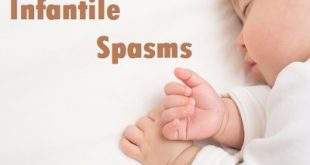
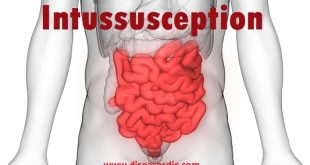
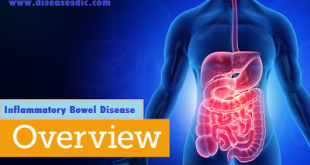
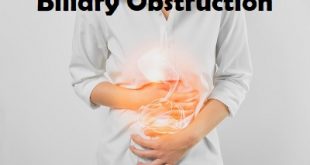
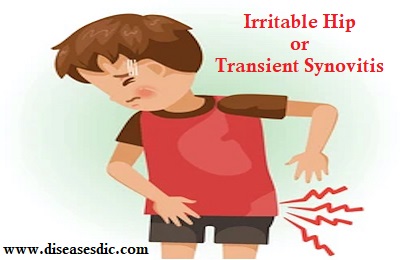


my dad is 70 and had stroke now he behaves somehow he does not understand what he does at times he realize later that he urinates and defecates on bed without feeling this. please what are the treatment that will help him out
Keep him in diapers most of the time. Consult doctor for treatment.
nice
Anxiety, spicy foods, lactose is the main factors as my personal experience.
I have ibs, stomach problm, but in a week or after 8, 9 days bleeding with ibs, is it harmful?
Not harmful. but its better to consult doctor and mention “weeks of rectal bleeding”
I have also ibs but it can’t be cure
Under proper treatment and diet control, it can be curable.
I didn’t see any Direct Information about CROHN’S DISEASE ? SINCERELY : JOHN HOWARD PHONE: 931-273-1693
Dear sir it is already uploaded in our previous posts. so check it once there in posts. thank you.
very good very informative and useful _ thankyou
I did appendix 5years ago but now having pains Frist at the operated area but later extended to right side of my bottom belly…
had CT scan result that I had two small stones. one at my bladder and the second somewhere the same place.
I went to other two doctors who was telling me that the pains am having has nothing to do with kidney stones. I was given zinat pains relief but the pains are still severe in the lower right part of my stomach to that right side of my bottom belly. plz help
Consult a urology specialist.
I have Sibo. I have it for years and now and hard to get better. I need help.
Please consult a doctor.
have been experiencing pain in my stomach early in the morning before I wake up.. then after some minutes it disappears. and that is every day. it has lasted for like 5yrs..please help. age 22
Please consult a gastroenterologist.
Found this really informative and helpful, hope to share my experience with others on IBS in the near future. Thanks.
I’ve been suffering with IBS with alternating constipation and diarrhea which is so hard to bear.
Can the cause really be worry or anxiety.
please consult a doctor.
Is there any connection between GERD and IBS. My wife is suffering from both problems. Please clarify sir. ..
Gastroesophageal reflux disease, or GERD, causes problems at the upper end, from the mouth and lungs down to the stomach, whereas irritable bowel syndrome, or IBS, is characterized by abdominal pain, diarrhoea and constipation. In both health conditions, symptoms may be triggered and relieved by eliminating certain foods from your diet.
I have been stooling for almost or over thirty days now, although for now the stooling is somehow getting better but am Lil bit worried bcoz I expect it to have stopped by
now
Please consult it with your doctor as soon as possible.
hope I can get information on my problems I have ins I bloat all around while trying to go number 2 have to use wipes to push my inneres back in sometime it bleeds I was in Vietnam 1964- 1968 VA says they are active health problem call 6025359953 if you can help me Richard
i have IBS……Second types….. 3 years treatment….. same position… plz help me
Please consult a doctor.
I’ve had IBS diarrhea since I was 16 and it got more worse in my mid-twenties till now and I’m 41yrs. old I’m wondering if there is something I could take that would help. If it from the dr. I can only take generic names that’s covered by my insurance. I’ve been through 5 different dr. for IBS in 10 yrs.
Please consult a nutritionist.
what about Chron’s desease?
To know about Crohn’s-disease, kindly visit the following link http://diseasesdic.com/crohns-disease-symptoms-risk-factors-causes-treatment-and-prevention/
what are the pain killers that should be taken along with mebeverine capsules…?
It can be taken safely with other medicines including painkillers, indigestion remedies and laxatives. ️ It is usually recommended that you only take mebeverine when needed rather than all the time. You should start taking it when your symptoms flare up and stop once they’re under control. This may take a 10-14 days.
Thank you Admin for providing most useful information for Ibs patients.
I am also suffering from IBS(D) from 2003 I went to many doctors for this problem. But all in vain. Now I am following two doctors (Gestrointralogist and Physiatrist)
Now I am well and taking both Doctors medicines.
which are:
Triptanol
citalopram
Imodium
Colofac